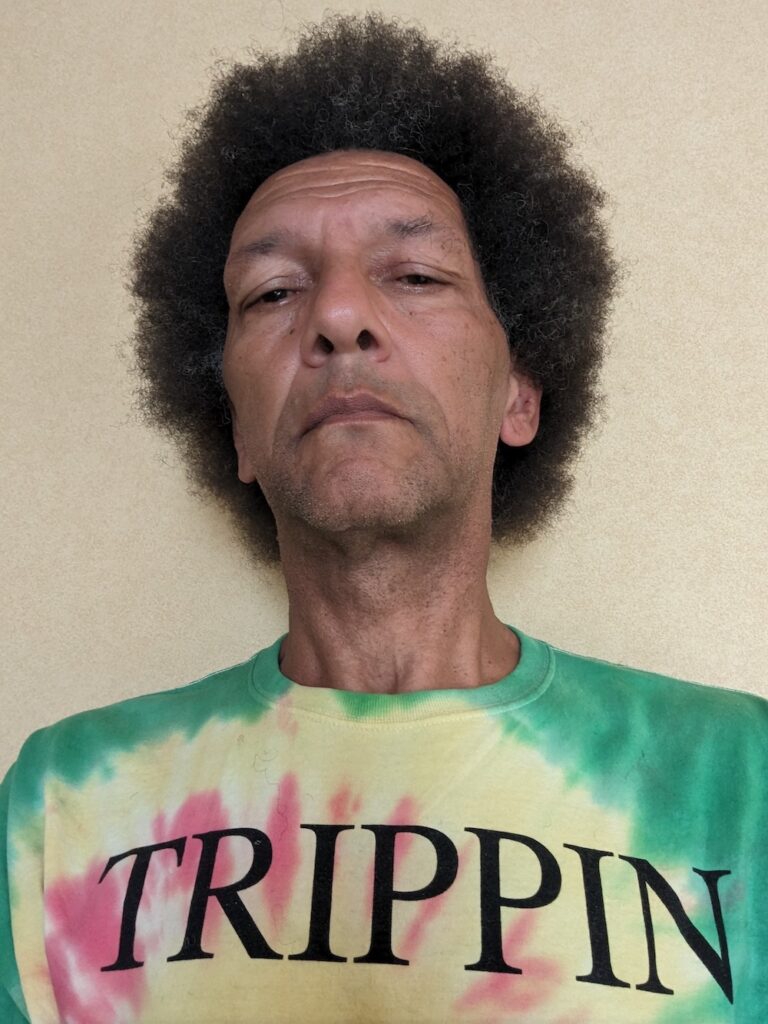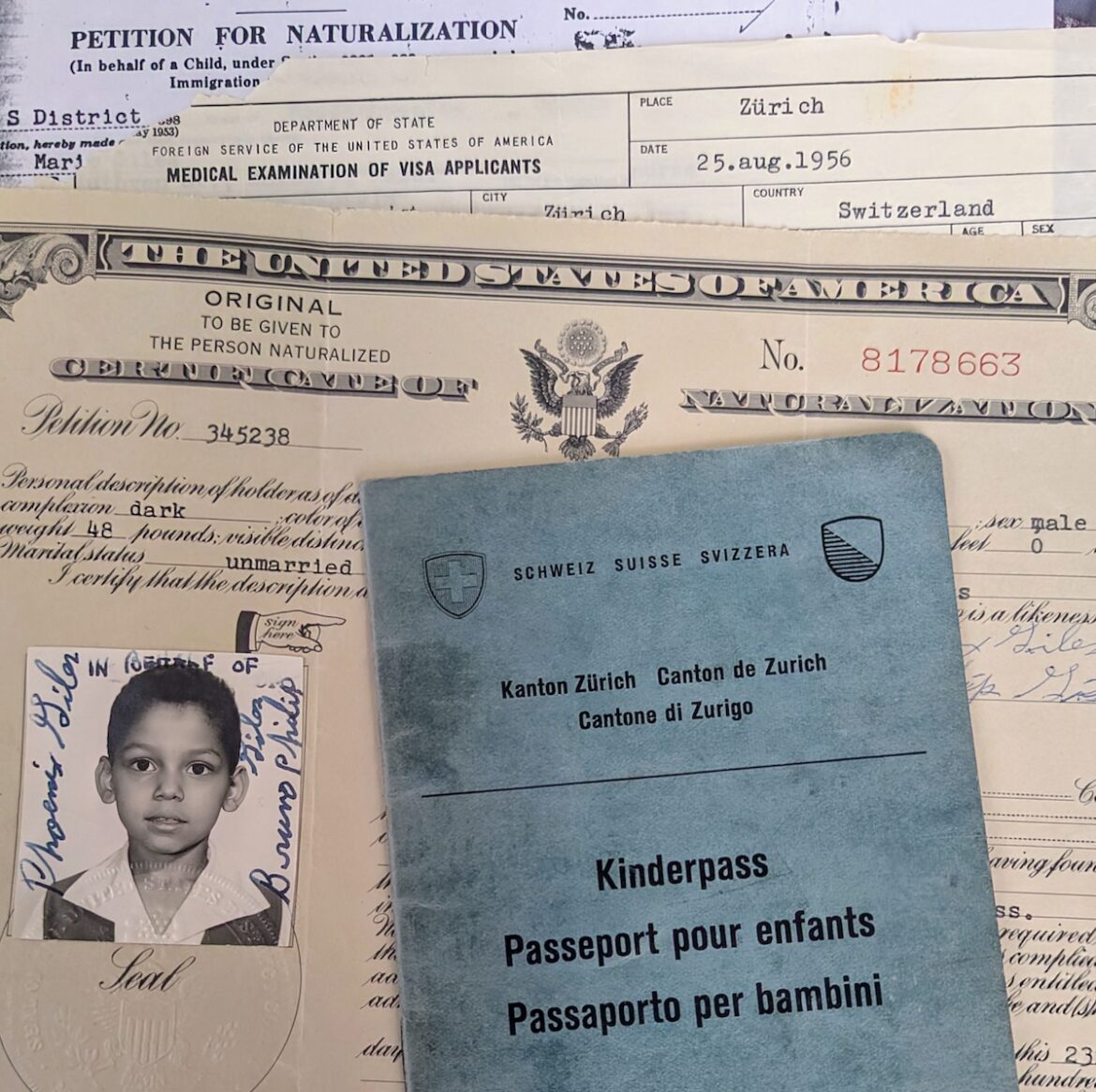By Bruno Giles
A Toddler’s Voice
July 17, 1956 Switzerland
Today, my foster mom showed me something neat called the KinderPass. It looks like a small book, similar to the ones she reads to me at bedtime. Since I can understand a bit of German, I know it means “child’s passport.” The title is also written in French—”Passport pour Enfants”—and Italian—”Passaporto per Bambini.” I think I like the Italian the best! I’m not sure what this little book is for since I’m only 18 months old, but she says I’ll need it soon.
The book has no pictures and mostly empty pages. It has my birthday printed on it and states that I’m a citizen of Switzerland. I’m not sure what that means, but I hope it’s a good thing. I like Switzerland!
Medical Exam for Visa Applicants Aug. 25, 1956
Me and my foster parents went on a field trip today. OK, it wasn’t a real field trip, like to a park or anything, it was to a doctor’s office. It was just a short ride downtown. They said I had to get a check-up because some people at the American Consul wanted me to. They wanted the doctor to find out if I was sick or had some kind of disease. Contagious disease, I think I overheard them say. They figured out that I was disease-free, with no tuberculosis or leprosy, which is good because l don’t like leopards. They also said I had no obvious mental defects.
And guess what? They gave me chocolate candy afterward! Chocolate makes me happy!
Airports, two months later.
I’m so tired, and mad too. My foster parents drove me to the airport and gave my little book and other paperwork, you know, the ones I told you about, to a lady who put me on a plane. My foster mother gave me a long hug, it kind of hurt me. They both waved at me a lot as the other lady took me to show me the inside of the plane. I don’t know why but my parents seemed very sad. My mother said something was in her eye.
We were on the plane for a long, long time. We went to someplace called Germany. Finally, when we got off the plane, you know what, a different lady took my passport and disease paper and put me on yet another airplane. Each time they had to show these people in uniforms all my papers so we could go through a gate and get on a plane. Then it happened again. We went really high, and my ears started to hurt me. I saw the ocean below. I was scared and started to cry. but my parents weren’t on the plane because I looked for them. The only person who talked to me was the lady that sat next to me, the one who had my papers.
I’m so tired of planes and airports. It’s so noisy here, and people are always running around everywhere. Voices are coming out of the ceiling yelling loudly, telling people where to go, and they do it! It’s very scary. I just want to take a quiet nap.
At the last airport, after all the paperwork was checked like a million times, the lady introduced me to these two people. I thought she called them my new parents, but I must have misheard her. They said I was in America. They were given all my stuff, and they took me in their car. I hope they take me back to my parents; I miss them.
Name Change, February 11, 1958
The people I’ve been staying with for the past two years say they want to change my name so that it matches theirs. I think they are talking about my last name, and I really hope I can keep my first name because I like it. Some kids find it funny, but I don’t care.
Adoption Decree, February 13, 1958
Guess what? I finally have parents like everyone else! The adoption decree says so. It came in the mail today. It has the word “official” on it, which I think it means magical, so I guess it’s a sort of magical document. It says it’s a legal document, meaning it’s like I was born to them, which makes me wonder if I was born unnaturally, but I’m not sure. I think “legal” means if they ever tried to send me back to Switzerland, I could take them to court. Whatever that means.
And the best part? It has my new name on it! They signed the paperwork last week, but I didn’t because I don’t write very well yet. I do ok for a five-year-old, but the adults say they can’t read it very well. Maybe they need to go back to school!
That piece of paper had my old name on it, the one I can’t use anymore, the one I should forget. It also had the name of some other lady on it, she had the same name as me. I think they want me to forget her too.
Oath of Alliance, July 19, 1960
Today, I had to agree to say things that other people wanted me to say, even though I didn’t understand what they were talking about. It was about pledging allegiance to the United States and not to the country I came from, even though I don’t remember anything about that place. I think the man called me an immigrant or something. Anyway, my parents answered and signed some papers for me while I just stared out the window of that big room until they were done.
Certificate of Naturalization, August 23, 1960
My new parents showed me a special certificate they got for me. It even has my picture on it! I’m five years old now. The certificate says I’m three feet tall, weigh forty-eight pounds, and am not married. Gross! It also states that I’m a citizen of the United States, and my former nationality was Swiss. I can’t wait to ask my mom if I can take it to school to show my friends!
My New Friend
I got a letter the other day from the Governor of Massachusetts. It said:
Dear friend,
I am pleased to see that you have become an American Citizen. Congratulations and best wishes,
Signed, Foster Furcolo
P.S. Please stop in and say “hello” when you’re near the State House.
I’ll see if my dad knows where the State House is. Maybe me and Foster can go get an ice cream someday. I wonder what school he goes to.
Birth Information
I got my birth data card today. I guess people kept asking my mother for proof that I was born, which even to a fourteen-year-old seems silly. It’s obvious that I was born! The card just has my name, birth date, and place of birth, Zürich Switzerland. Nothing else.
I saw where she keeps it, in a big folder, on the top shelf of the closet with all the other papers. Some day when my parents aren’t home, I’ll climb up there and see what else is in there. It’s labeled, Swiss Adoption Paperwork.
Bruno Giles
Natick Ma.

Bruno Giles is a biracial international adoptee, conceived in London, born in Zurich Switzerland, and raised in America. He has only recently found his birth father after 68 years, a Nigerian, through the miracle of DNA.

